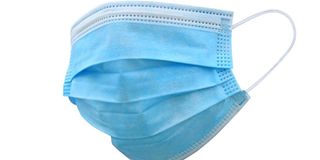Why you feel suffocated by mask

The Health ministry recommends that people wear a mask in public places. PHOTO | FOTOSEARCH
The preaching is to wear masks. The drinking, again, wear masks. It truly is an unprecedented time to do the opposite of what the Covid-19 sermon says. To curb the spread of the coronavirus, Kenyans have no choice, but to wear masks when they need to.
For some people, however, wearing a mask has proved to be a nightmare, with reports of feeling drowsy, suffocated and getting headaches whenever one wears a mask.
Corazon Cheptoo, 26, has a hard time whenever she wears a mask while travelling. “I have motion sickness, which hits me every time I travel. Normally, it invites nausea, so I always prefer sitting by the window to get fresh air. This time around when I was travelling, with a mask on and sitting away from the window, I ran out of breath countless times,” she says.
With the new rules imposed by the Health ministry on social distancing even in matatus, she had the luxury to switch seats and get one next to a window. “When I moved to the window seat, I could not take it anymore. I pulled down the mask, covering only my mouth, so I could breathe for a few minutes then pulled it back up to cover my nose,” she says. Corazon thinks that, “the mask experience in vehicles is harrowing for people with motion sickness”.
Lukas Ochieng’ is a mechanic and sometimes works with his mask on. That, he says, “is not easy because mechanics is not a light job”. “I have breathing problems when donning my mask. I believe this is common for everyone. This is especially when I do work that requires energy. It is in those times that I feel like I am suffocating,” he adds.
Others like Cynthia Ouma complains of having headaches whenever she puts on a mask.
Asked what could be the cause of some of these issues, Dr George Nyale, a physician and pulmonologist (chest specialist), says quite a number of things can contribute to complications as a result of having a mask on for a while. Some of the reasons are having low oxygen, pre-existing conditions like asthma, rebreathing carbondioxide, which could lead to drowsiness and some people are allergic to the fibre used to make the mask, which causes irritation.
He advises those who use cloth masks and are allergic to fibre to wash them before use. And, the ones who experience drowsiness, he says, ought to be checked by a doctor because they could be having an underlying condition like mild asthma.
Another pulmonologist, Dr Jeremiah Chakaya, who supports the Health ministry’s guidelines on the importance of wearing masks, urges people to observe the rules not to avoid arrest, but for prevention of Covid-19.
“If you are alone within a three-metre distance from people and not in a public place, you do not need to use a mask, but when you are close to people, you ought to have a mask on,” insists Dr Chakaya.
For those who get headaches, he says: “It could be psychological because people do not like masking.”
He recommends a cloth mask for people without complications, and surgical and N95 masks for those with diseases that could put them at high risk of Covid-19.



